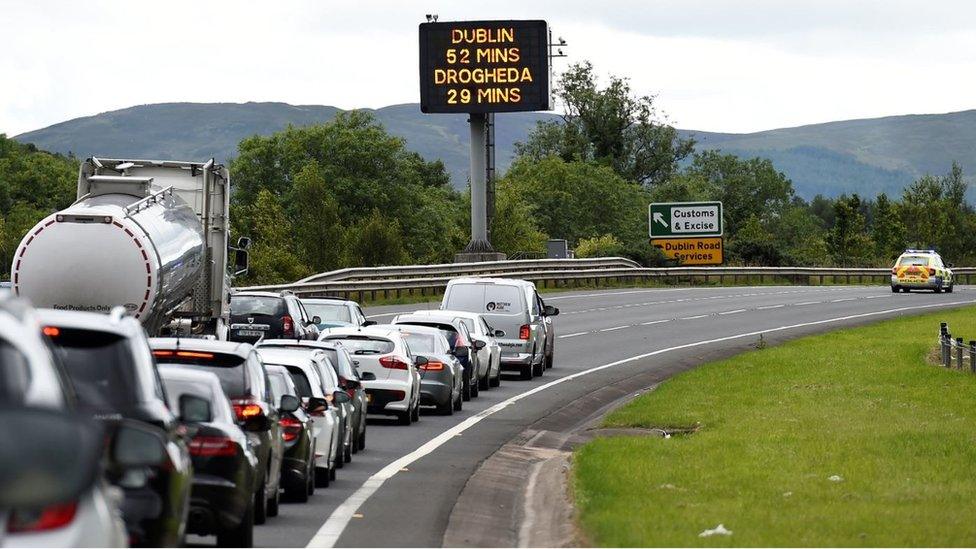Brexit: Why no deal would be different in Northern Ireland
- Published
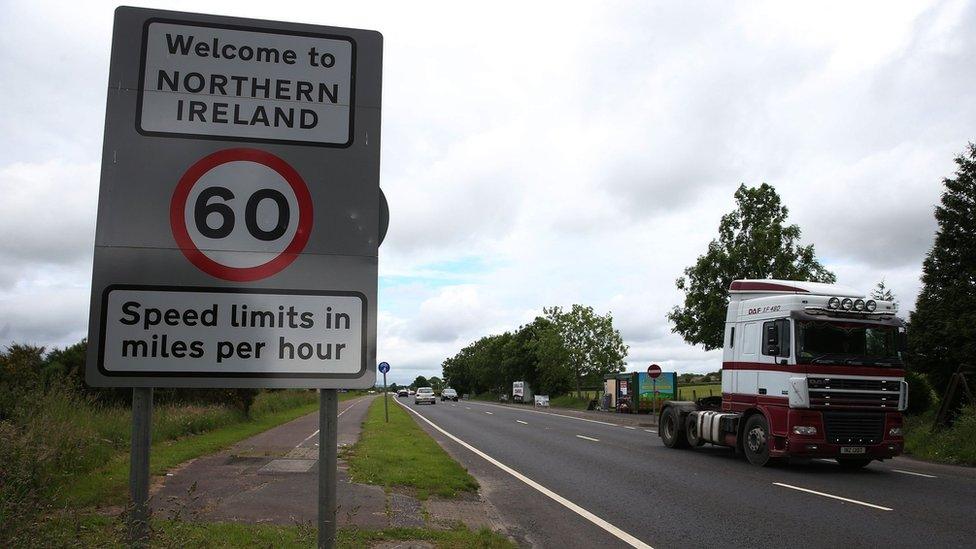
If the UK and EU do not agree a post-Brexit trade deal, Northern Ireland will be shielded from the direct impacts of a no-deal Brexit in a way the rest of the UK will not.
That is mainly due to the Northern Ireland Protocol, a special deal reached last year.
Its purpose is to prevent a hard land border in Ireland.
Its consequence is that NI will retain tariff-free access to the EU while the rest of the UK will not.
The EU and UK agreed they wanted to avoid new checks on goods crossing the border between Northern Ireland and the Republic of Ireland.
That is achieved by keeping Northern Ireland in the EU's single market for goods and by having Northern Ireland apply EU customs rules at its ports.
This will allow goods to flow from NI to the Republic and the rest of the EU as they do now without customs checks, tariffs or new paperwork.
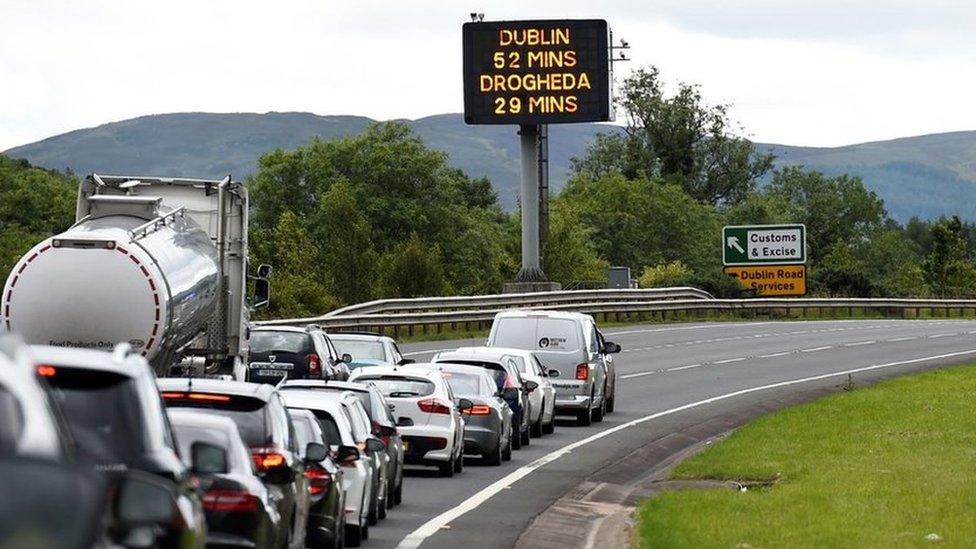
The official advice to Northern Ireland businesses, external spells this out: "No EU member state will be able to apply any tariff or related barriers to goods from Northern Ireland.
"The EU is obliged under Article 5 of the Protocol to guarantee tariff-free, frictionless access in any scenario from 31 December 2020.
"This does not just apply to movements from Northern Ireland to Ireland, it applies to movements to any other EU member state."
Even with a trade deal Northern Ireland businesses would have an advantage.
A deal would eliminate tariffs for UK businesses trading with the EU.
But only NI firms would avoid new regulatory checks because they will still be following EU single market rules.
The UK government has also promised NI businesses that, with few exceptions, they will continue to have unfettered access to the wider UK market.
However the flipside of the protocol is that goods, particularly food, arriving into Northern Ireland from rest of the UK will be subject to a new range of controls and checks.
A very small proportion of GB-NI trade could also be hit with tariffs.
Earlier this week, the UK and EU reached agreement on how to minimise these checks, but Northern Ireland businesses still face significant new complexity when bringing in goods from the rest of the UK.
Northern Ireland may also be able to mitigate disruption at the English Channel ports in a way other parts of the UK cannot.
For many businesses on the island of Ireland, the easiest way to get their goods into the EU is a ferry to Britain, a drive to a channel port and then another short ferry trip.
In anticipation of disruption at the channel, ferry companies have greatly increased their capacity on direct routes to the EU from Irish ports, particularly Rosslare.
This will allow NI companies to make what is an intra-single market movement with no new checks or paperwork.
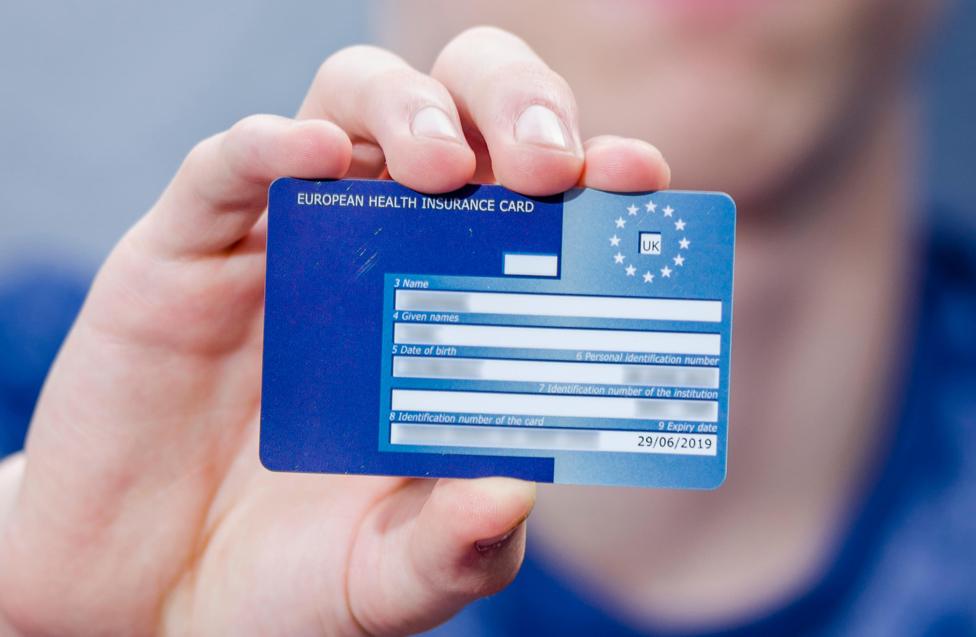
If there is no deal people in Northern Ireland should also retain access to the European Health Insurance Card (EHIC) or a similar scheme.
The EHIC currently entitles you to state-provided medical treatment if you fall ill or have an accident in any EU country, or in Switzerland, Norway, Iceland and Liechtenstein, where the scheme also applies.
It covers pre-existing medical conditions and routine maternity care as well as emergency care.
The UK government has been in talks, separate from the main trade negotiation, for a new healthcare arrangement with EU.
However the Irish government has said that if the UK doesn't reach agreement it will step in.
On Thursday, the Irish Department of Foreign Affairs told The Irish News, external: "The scheme is designed to address any loss of access to EHIC rights by eligible Irish, British and EU citizens who are residents of Northern Ireland and who do not maintain EHIC or equivalent rights under the Withdrawal Agreement, EU Regulations or otherwise."
The Irish government is also looking at ways to give students at Northern Ireland's universities continued access to the Erasmus scheme.
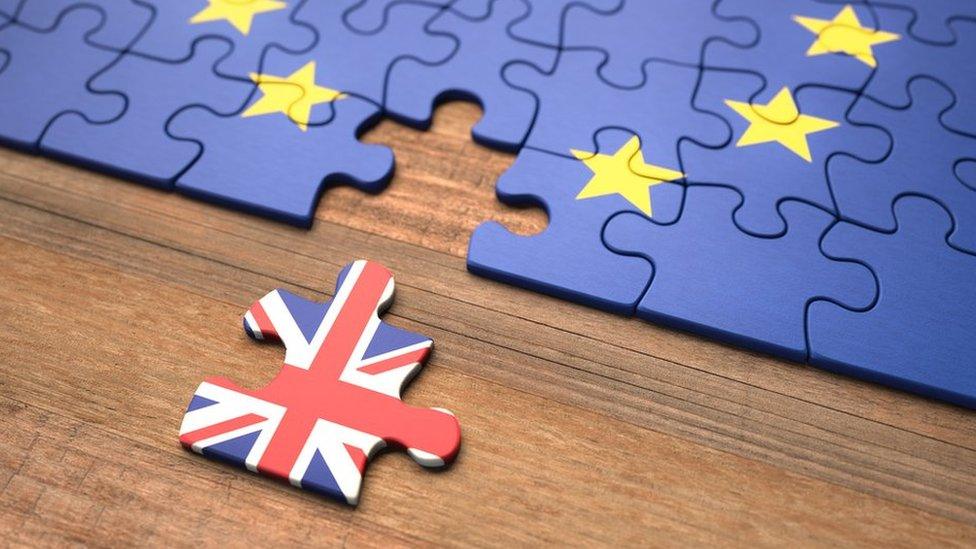
It is an EU programme that helps students study in other countries.
Whether or not there is a deal, people in Northern Ireland will also be able to use their rights under the Good Friday Agreement (GFA) to maintain freedom of movement in the EU.
The GFA allows people from Northern Ireland to be British, Irish or both.
With an Irish passport comes rights that will be lost to people in other parts of the UK.
The EU's chief negotiator Michel Barnier explained this during in speech in Belfast in 2019.
"Whilst Northern Ireland will no longer be part of the EU, people born and raised here that choose to be Irish citizens will still be EU citizens," he said.
"This means they can continue to move and reside freely within the EU.
"The UK has committed to upholding their rights. They cannot be discriminated against on the basis of nationality."
However Northern Ireland's special status will not protect it from all the impacts of a no-deal Brexit.
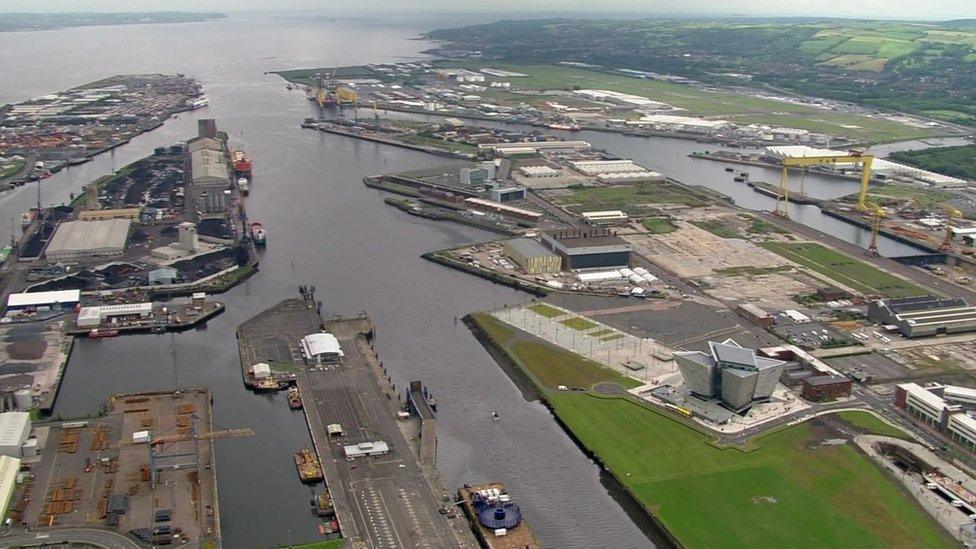
Goods, particularly food, arriving into NI from rest of the UK will be subject to a new range of controls and checks
The protocol only keeps Northern Ireland in the EU single market for goods, not services.
Therefore service sector companies are likely to find their market access reduced in a similar way to other firms in the rest of the UK.
Northern Ireland businesses would also face the same potential problems as those in other parts of the UK if there is no deal on data sharing.
Aside from trade, the UK has been negotiating with the EU on a security partnership.
Northern Ireland does not have special treatment in this area and it would lose access to EU databases in the same way as other parts of the UK.
Northern Ireland's justice minister and senior police officers have raised concerns about this.
The minister, Naomi Long, said it would be like trying to combat 2020 crime with 1950s tools.
- Published10 December 2020
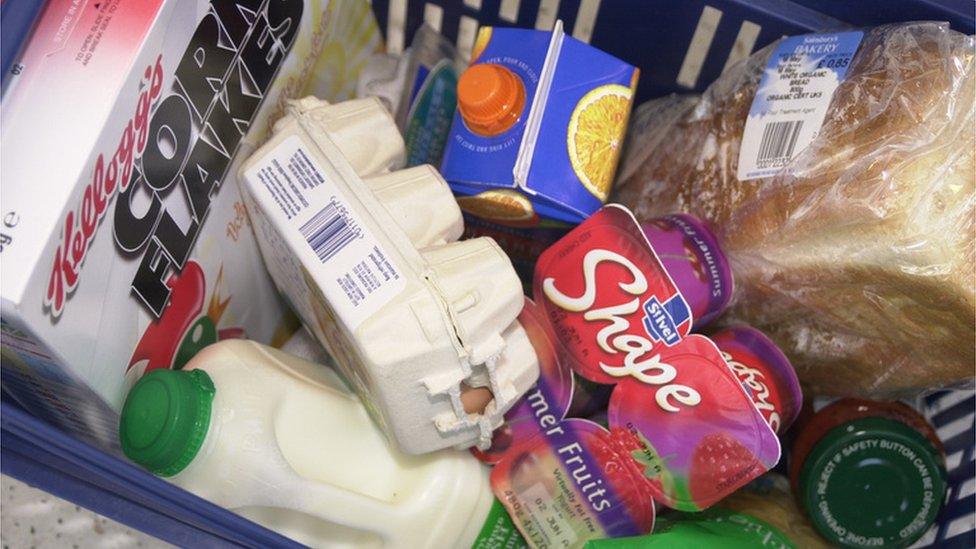
- Published2 February 2024

- Published12 January 2021
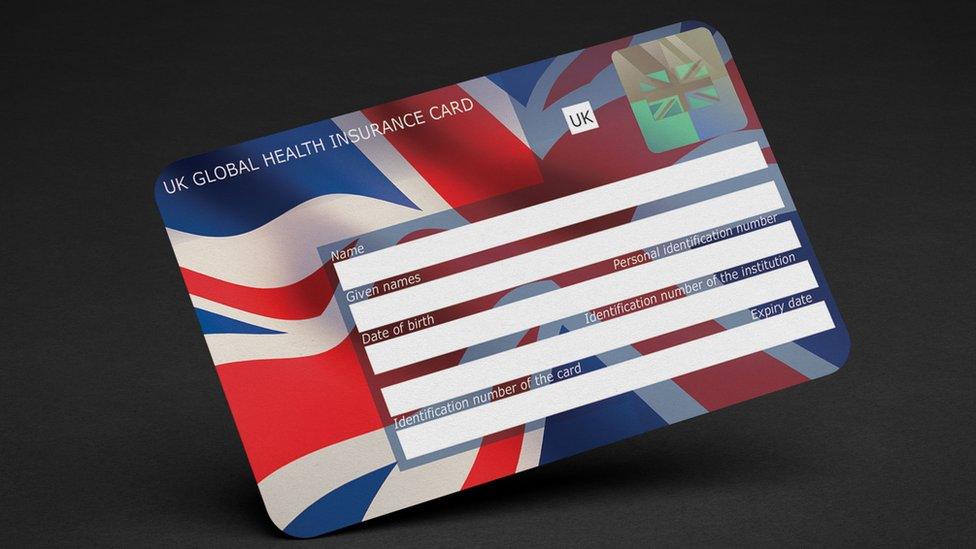
- Published22 July 2020
